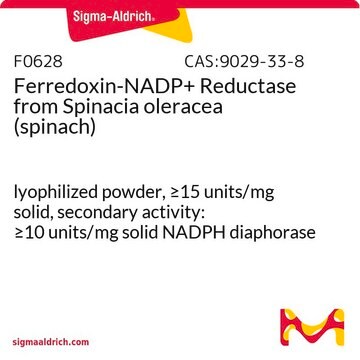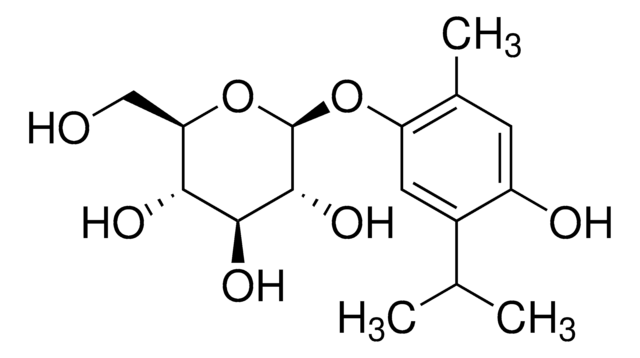推荐产品
一般說明
2-Deoxy-D-glucose 6-phosphate sodium salt serves as a crucial intermediate in glycogen degradation. Its production in mammalian cells occurs through the action of hexokinase on 2-Deoxy-D-glucose (2-DG).
2-Deoxy-d-glucose (2DG) is a glucose molecule which has the 2-hydroxyl group replaced by hydrogen, so that it cannot undergo further glycolysis. As such, it acts to competitively inhibit the production of glucose-6-phosphate from glucose at the phosphoglucoisomerase level (step 2 of glycolysis). In most cells, glucose hexokinase phosphorylates 2-deoxyglucose, trapping the product 2-deoxyglucose-6-phosphate (2DG6P) intracellularly. 2DG & 2DG6P serve as good markers for tissue glucose uptake and hexokinase activity. For example, many cancers have elevated glucose uptake and hexokinase levels. 2DG6P undergoes only the first enzymatic reaction in the pentose phosphate pathway to generate 2-DG-6-phosphogluconolactone, which cannot be further metabolized.
應用
2-Deoxy-D-glucose 6-phosphate sodium salt is a versatile compound that finds application in metabolomics and biochemical research.
特點和優勢
- High-purity compound suitable for a wide variety of research applications
其他說明
For additional information on our range of Biochemicals, please complete this form.
To gain a comprehensive understanding of our extensive range of Monosaccharides for your research, we encourage you to visit our Carbohydrates Category page.
儲存類別代碼
11 - Combustible Solids
水污染物質分類(WGK)
WGK 3
閃點(°F)
Not applicable
閃點(°C)
Not applicable
Choose from one of the most recent versions:
分析证书(COA)
Lot/Batch Number
Don't see the Right Version?
If you require a particular version, you can look up a specific certificate by the Lot or Batch number.
Determination of hexokinase activity by formation of 2-deoxy-D-glucose-6-phosphate.
G V TITOVA et al.
Biokhimiia (Moscow, Russia), 26, 706-710 (1962-03-01)
Quentin Defenouillère et al.
Science signaling, 12(597) (2019-09-05)
Anti-cancer strategies that target the glycolytic metabolism of tumors have been proposed. The glucose analog 2-deoxyglucose (2DG) is imported into cells and, after phosphorylation, becomes 2DG-6-phosphate, a toxic by-product that inhibits glycolysis. Using yeast as a model, we performed an
我们的科学家团队拥有各种研究领域经验,包括生命科学、材料科学、化学合成、色谱、分析及许多其他领域.
联系技术服务部门

![2-脱氧-2-[(7-硝基-2,1,3-苯并恶二唑-4-基)氨基]-D-葡萄糖 ≥97% (HPLC)](/deepweb/assets/sigmaaldrich/product/structures/104/527/40bd5a41-ebc4-484e-a10e-891fecfaea79/640/40bd5a41-ebc4-484e-a10e-891fecfaea79.png)




